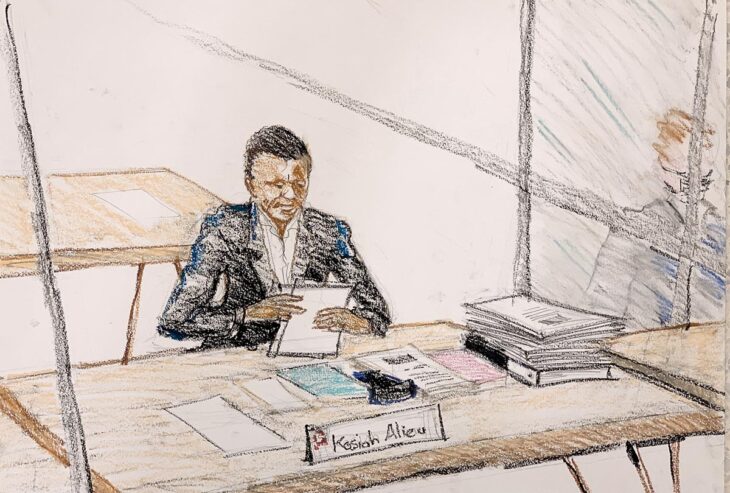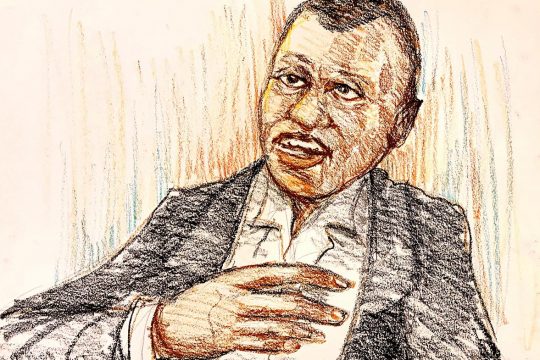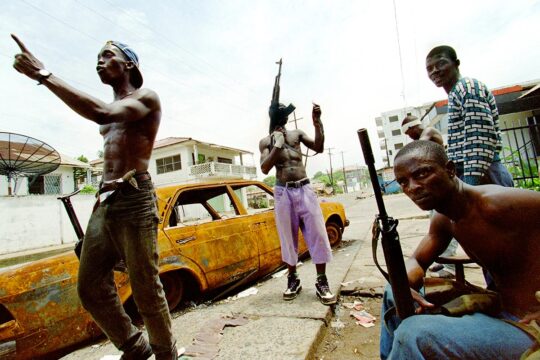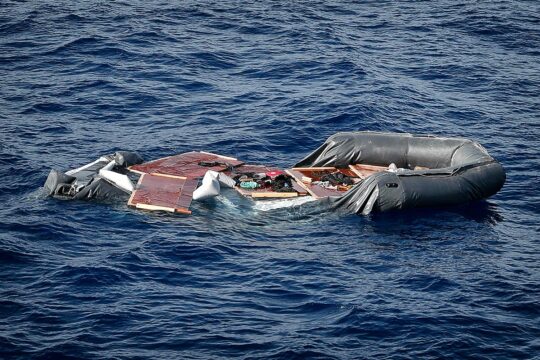Sitting in the front row in his black suit and blue shirt, Alieu Kosiah initially remained impassive. But as the appeals judgment against him was read out, he reacted with a paradoxical sneer. For there was nothing funny about the cold, implacable deliberations of the Swiss Federal Criminal Court judges. After a few minutes, the suspense was gone. Sentenced by the trial court to 20 years in jail for war crimes, Kosiah was now found guilty of crimes against humanity as well. The only consolation for this ex-commander of armed group ULIMO is that his ban from Switzerland, once his sentence served, has been reduced from fifteen to ten years. Imprisoned since November 2014, he could be released for good behaviour in 2028 at the earliest, once two-thirds of his sentence has been served.
During the reading of the verdict, Judge Olivier Thormann first listed Kosiah's main lines of defence. Throughout the appeals process, he has maintained he was not present at the scene at the time of the events and that the entire prosecution was a conspiracy led by Swiss NGO Civitas Maxima. This line of argument was quickly swept aside by the judges. They noted that before taking the plaintiffs' statements into account, they had "consulted numerous independent sources, articles and the report of the Truth and Reconciliation Commission, which documented the actions of ULIMO [United Liberation Front of Liberia] in Lofa", a region in the far north of Liberia. They also noted that the statements of the accused himself during the initial hearings, followed by those of several defence witnesses, contradicted his absence from the battlefield between 1993 and 1995.
The court therefore found that Alieu Kosiah took "an active part in the conquest of Lofa as a member of the ULIMO General Staff and close associate of Commander Pepper and Salt".
No conspiracy
The judges then turned their attention to the conspiracy accusations. They noted that "the witnesses' statements, which contradicted each other in certain places, demonstrated on the contrary that they had not been coached by the organization", and that the defence had provided "no concrete proof" of this theory. "Mr. Kosiah confused the credibility of the witnesses with that of their testimony," the court found. It criticized him for having systematically looked for inconsistencies in the victims' statements in an attempt to discredit them, without ever addressing the substance of the accusations against him. The court also criticized the defence decision to present three witnesses with "very little credibility" to contradict the civil parties' claims.
While acquitting him of the cruel treatment of certain civilians, the court found Alieu Kosiah guilty of most of the charges, including several murders, the desecration of corpses, forced transfer of civilians and rape.
"This is a real victory for my clients, who had to face and respond to defence witnesses from the same village as themselves,” said a relieved Romain Wavre, one of the victims' lawyers, after the hearing. “This verdict confirms the reality of the suffering of which my clients have told since the early days of the investigation."
"A great day for the victims”
For Raphael Jakob, another of the victims' lawyers, what's important is that the appeal court upheld the charge of crimes against humanity in addition to war crimes. "It's an important decision that could also have an impact on the prosecution of other atrocities before the Swiss authorities," he says. Lawyer Alain Werner, founder of the Civitas Maxima NGO behind the prosecution, makes no secret of his joy and emotion. "For the victims, this is recognition. They had to face Ebola, Covid and very real threats to come and testify three times in Switzerland in proceedings lasting over nine years. It's heroic," he exclaims.
The other major player in this case is former Liberian journalist Hassan Bility, now director of the Global Justice and Research Project (GJRP), an NGO partner of Civitas Maxima. "This is a great day for the victims of Liberia's two civil wars. This decision makes possible to ask that the international community pressure the Liberian government to speed up implementation of Truth Commission recommendations", which included the organization of trials at national level, he said by telephone from Liberia.
Kosiah's disappointed lawyer, Dimitri Gianoli, denounced a "political decision" that failed to take into account "the many inconsistencies of the victims". Asked whether he would appeal the decision to the Federal Court, he said he would wait to read the decision before deciding with his client. The defence has 30 days from receipt of the ruling to do so.







